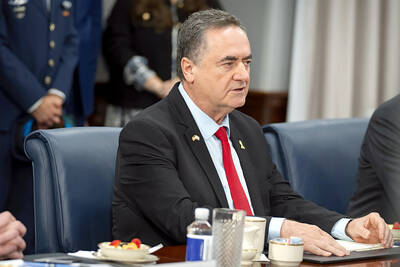For nearly two years, US President George W. Bush's administration has kept hundreds of prisoners of the war on terror at its naval base in Guantanamo, Cuba, leaving them in a legal void that is beginning to worry US lawyers.
"A rogue justice!" exclaims Michael Ratner, an attorney for the Center for Constitutional Rights, playing off the State Department's expression "rogue states" for countries that support terrorism.
One of his clients, a British national captured in Afghanistan, insists he has been able to see the sun for only seven minutes in the last seven months and does not even know he has an attorney.
"Moazzam Begg was allowed to read only one letter sent by his parents," says Ratner, who is also defending Australian prisoner David Hicks.
Begg is among the 660 people from 42 countries, kept behind barbed wire at the camp, whose fate is unclear. The Bush administration has refused to grant them prisoner of war status as outlined by the Geneva conventions.
Defense Secretary Donald Rumsfeld has made it clear that people will remain in detention until the war on terror ends.
"The prisoners find themselves in a gray zone where military justice overlaps with civil law, because the Bush administration is working on procedural issues to justify these extended detentions without due process," explains American University professor Emilio Vianno, a specialist in international law.
This argument is refuted by the military, which insists that war-time cases can be handled by military tribunals.
Law professor Jonathan Turley from George Washington University calls the military rules "laughable."
"They give the appearance of legal process without any substance," Turley continues. "The tribunal is in fact designed to guarantee convictions."
More than 20 months after the prison camp was established in Guantanamo in the wake of September 11, and after the US government announced its intention to use military tribunals, the prisoners cannot meet their lawyers, no legal procedure has been established, and no date for opening trials has been set.
"It is not by chance that the US chose Guantanamo for this camp," argues professor Vianno. "It allows the government not to apply to these prisoners the basic rights spelled out in the US Constitution."
The detainees are subjected to "continuous interrogations with the promising of a reward system, promising some ridiculous thing like a hamburger," says Michael Ratter.

STEPPING UP: Diminished US polar science presence mean opportunities for the UK and other countries, although China or Russia might also fill that gap, a researcher said The UK’s flagship polar research vessel is to head to Antarctica next week to help advance dozens of climate change-linked science projects, as Western nations spearhead studies there while the US withdraws. The RRS Sir David Attenborough, a state-of-the-art ship named after the renowned British naturalist, would aid research on everything from “hunting underwater tsunamis” to tracking glacier melt and whale populations. Operated by the British Antarctic Survey (BAS), the country’s polar research institute, the 15,000-tonne icebreaker — boasting a helipad, and various laboratories and gadgetry — is pivotal to the UK’s efforts to assess climate change’s impact there. “The saying goes

Police in China detained dozens of pastors of one of its largest underground churches over the weekend, a church spokesperson and relatives said, in the biggest crackdown on Christians since 2018. The detentions, which come amid renewed China-US tensions after Beijing dramatically expanded rare earth export controls last week, drew condemnation from US Secretary of State Marco Rubio, who on Sunday called for the immediate release of the pastors. Pastor Jin Mingri (金明日), founder of Zion Church, an unofficial “house church” not sanctioned by the Chinese government, was detained at his home in the southern city of Beihai on Friday evening, said

TICKING CLOCK: A path to a budget agreement was still possible, the president’s office said, as a debate on reversing an increase of the pension age carries on French President Emmanuel Macron yesterday was racing to find a new prime minister within a two-day deadline after the resignation of outgoing French Prime Minister Sebastien Lecornu tipped the country deeper into political crisis. The presidency late on Wednesday said that Macron would name a new prime minister within 48 hours, indicating that the appointment would come by this evening at the latest. Lecornu told French television in an interview that he expected a new prime minister to be named — rather than early legislative elections or Macron’s resignation — to resolve the crisis. The developments were the latest twists in three tumultuous

FIRST STAGE: Hamas has agreed to release 48 Israeli hostages in exchange for 250 ‘national security prisoners’ as well as 1,700 Gazans, but has resisted calls to disarm Israel plans to destroy what remains of Hamas’ network of tunnels under Gaza, working with US approval after its hostages are freed, it said yesterday. Israeli Minister of Defense Israel Katz said that the operation would be conducted under an “international mechanism” led by the US. “Israel’s great challenge after the hostage release phase will be the destruction of all Hamas terrorist tunnels in Gaza,” Katz said. “I have ordered the army to prepare to carry out this mission,” he added. Hamas operates a network of tunnels under Gaza, allowing its fighters to operate out of sight of Israeli reconnaissance. Some have passed under